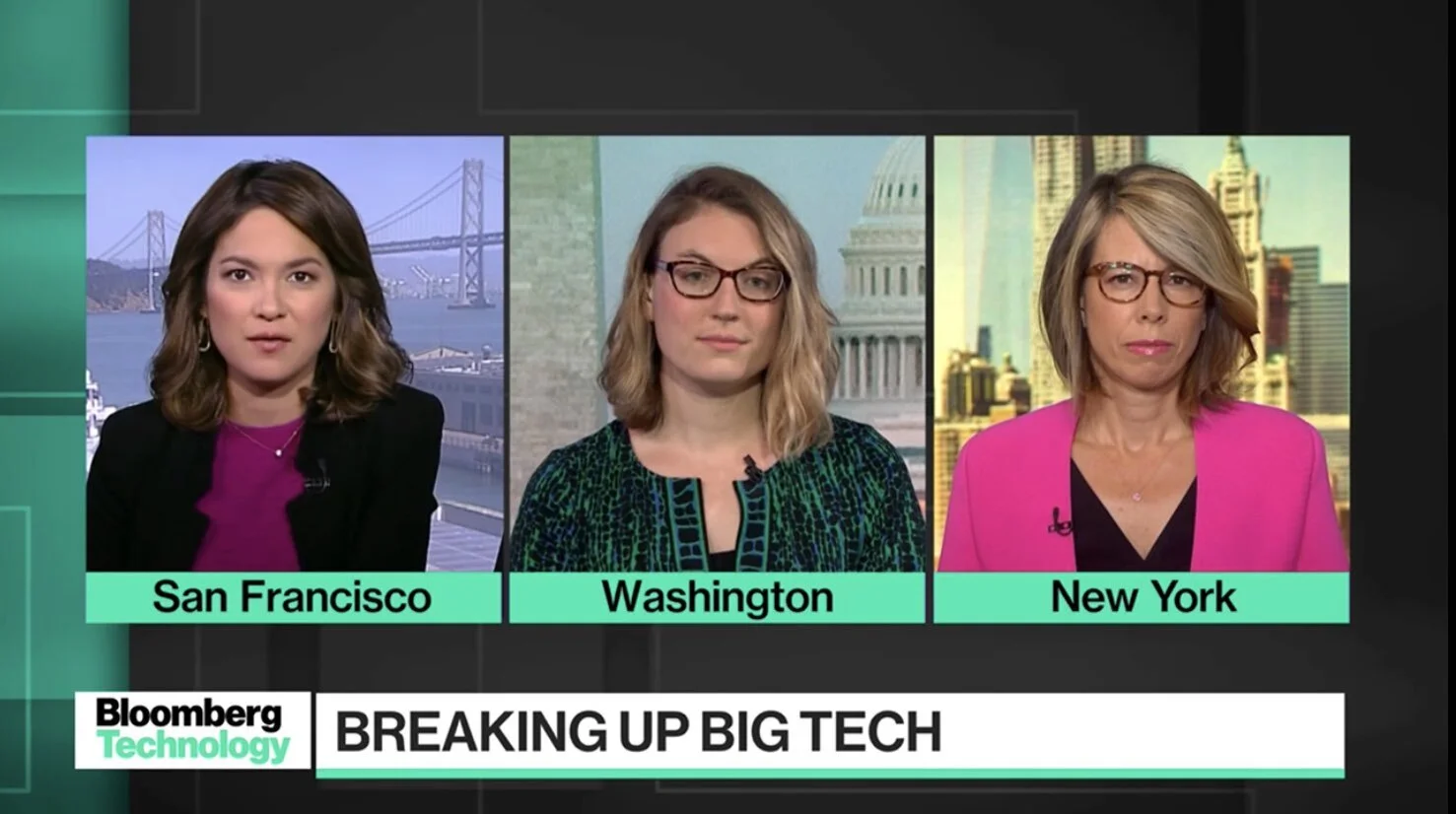POLITICO's Nancy Scola and Margaret Harding McGill report that U.S. news companies are using a playbook from Europe to challenge the online platforms they see as an existential threat. They speak to Open Markets Director of Enforcement Strategy Sally Hubbard who says "I think the bargaining power between any individual publisher and a tech platform is just too vast.”
Read More"When a founding father of the information industry calls for breaking the monopoly power of big tech it means the time has come for the government to act," says Open Markets Executive Director Barry Lynn in a statement.
Read MoreClaire Kelloway writes in Food & Power about how the California Department of Alcoholic Beverage Control is investigating whether or not Amazon’s Los Angeles location meets state qualifications for a liquor store.
Read MoreOpen Markets Legal Director Sandeep Vaheesan published an article in the Maryland Law Review on how antitrust law protected capital and punished labor in the original Gilded Age and in the second Gilded Age in which we live. Although the specific doctrines and rules today are different than they were a century ago, antitrust is once again doing little to check corporate domination of markets and also preventing a significant fraction of the labor force from organizing.
Read MoreJalopnik reporters Dhruv Mehrotra and Aaron Gordon publish an investigation showing just how much money Uber and Lyft take from their drivers. They speak to Open Markets Legal Director Sandeep Vaheesan who told them: “This is really fascinating and troubling,” Vaheesan went on to say the findings “support the argument that their business model is built on large scale labor exploitation.”
Read MoreBloomberg reporters John Gittelsohn and Gerrit De Vynck reports on how CapitalG, a private investment arm of Alphabet has been in all the right places lately, generating billions of dollars in gains. The success is raising questions about the company’s strategy and sprawling influence over the technology industry. They speak with Open Markets Senior Fellow Matt Stoller who told them: “Deal flow gives you a lot of insight into what other people are doing in the market.”
Read MoreBenefits Pro reporter Scott Woolridge reports that the consolidation of market share in health-related industries has happened largely under the radar. He cites Open Markets' American Concentration Crisis report and interviews Executive Director Barry Lynn on how consolidation is impacting every day Americans. “This stuff could be fixed by the DOJ and the FTC tomorrow,” he says. “There is an ample amount of power in federal and state governments to address this, it’s just not being used.”
Read MoreSandeep Vaheesan Calls for Building Worker, Small Business Power and Criticizes Abusive Contracts – Kochland Author Chris Leonard Talks Koch Brothers, Corporate Power
Read MoreOpen Markets Institute interviews Christopher Leonard, author of 'Kochland: The Secret History of Koch Industries and Corporate Power in America.' Leonard talks about the story of the Koch family and what it says about corporate power.
Read MoreThe New Yorker's Sheelah Kolhatkar profiles Elizabeth Warren's plans to break up big tech and how in early 2016 then-Open Markets' Lina Khan and Barry Lynn shaped her thinking in regards to antimonopoly policy. She reports that on June 29, 2016, Warren delivered a speech, titled “Reigniting Competition in the American Economy,” at an event for Open Markets. “Google, Apple, and Amazon have created disruptive technologies that changed the world, and every day they deliver enormous value,” Warren said. “They deserve to be highly profitable and highly successful. But the opportunity to compete must remain open for new entrants and smaller competitors who want their chance to change the world.”
Read MoreSteve Lohr of The New York Times offers four prominent ideas as to how big tech should be reined in from experts, including Open Markets Director Barry Lynn.
Read MoreOpen Markets Legal Director Sandeep Vaheesan asserts that fine print isn’t “voluntary” and we should overhaul our thinking about contractual agreements. In this piece for Current Affairs, Vaheesan explores how we are subject to a dense web of contracts that grant us—or (more often) deprive us of—rights. He argues that against corporate power, Congress must wield its power to ban abusive contractual provisions.
Read MoreWill out-of-state investors own a sizable portion of Costco’s chicken production? One investor from North Carolina has applied for permits to build at least 132 chicken houses across nine locations in four Nebraska counties, according to public documents reviewed by Food & Power. Read Claire Kelloway's latest story on how one private equity fund could own a quarter of the chicken houses for Costco’s project in Nebraska.
Read MoreBloomberg's Sarah Frier writes a critical report about the Federal Trade Commission's $5 billion settlement with Facebook. She reports that the FTC’s antitrust investigation looks a lot less imposing given its privacy settlement with the company and speaks with Open Markets Senior Fellow Matt Stoller. “For any anticompetitive behavior they want to get away with, they’re going to say, ‘The FTC made us,’ ” Stoller told her. “That’s what they bought for $5 billion.”
Read More“From Net Neutrality on down, Ajit Pai continues to side with massive corporations over the American people,” says Open Markets Research and Reporter Matthew Buck. “Today’s recommendation is no different.”
Read MoreOn August 9th, Open Markets Institute joined Public Justice and the American Association for Justice in filing an amicus brief in support of the consumer antitrust action against Qualcomm.
Read MoreIn this piece for The Atlantic, Nathan Schneider and Open Markets Legal Director Sandeep Vaheesan argue that tougher regulation will help to fight monopoly, but workers and small businesses also need the ability to join forces against corporate power. "Collective power—that is, allowing independent workers and small businesses to collaborate to negotiate better treatment from megacorporations, or to start enterprises of their own—should be a pillar of creating an equitable economy," they assert.
Read More

















